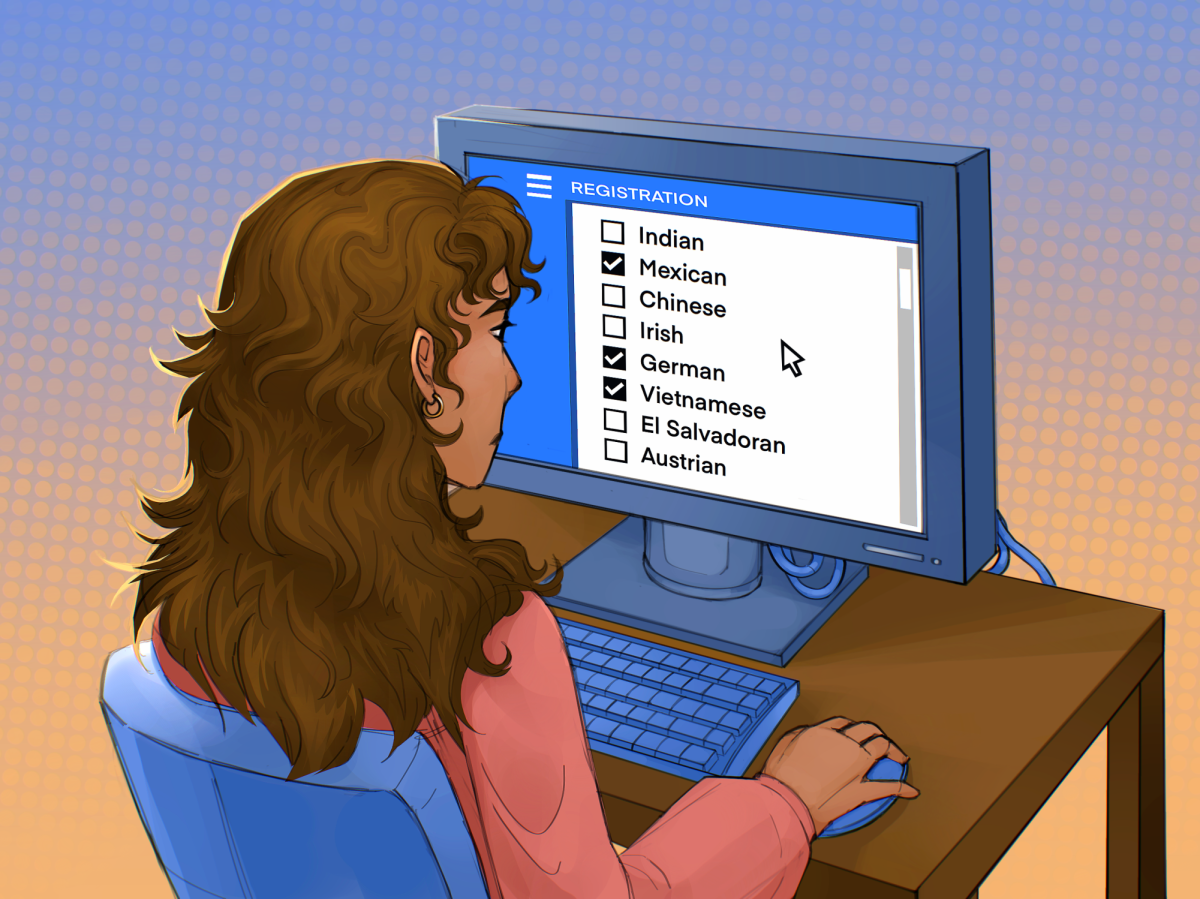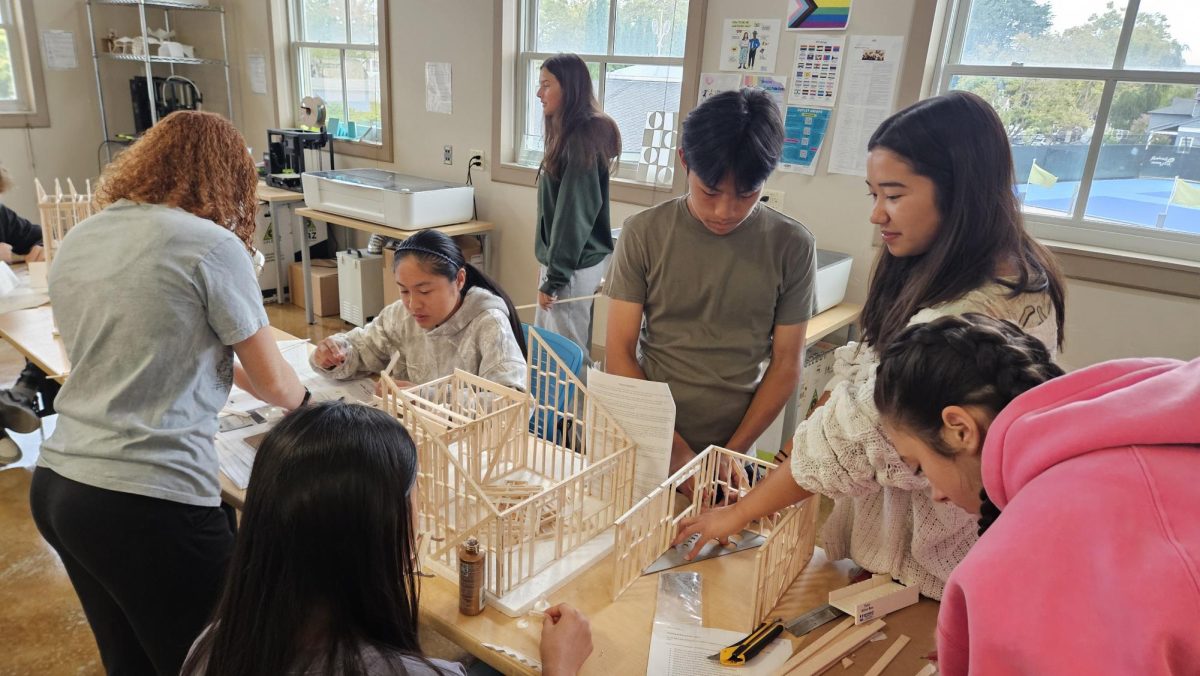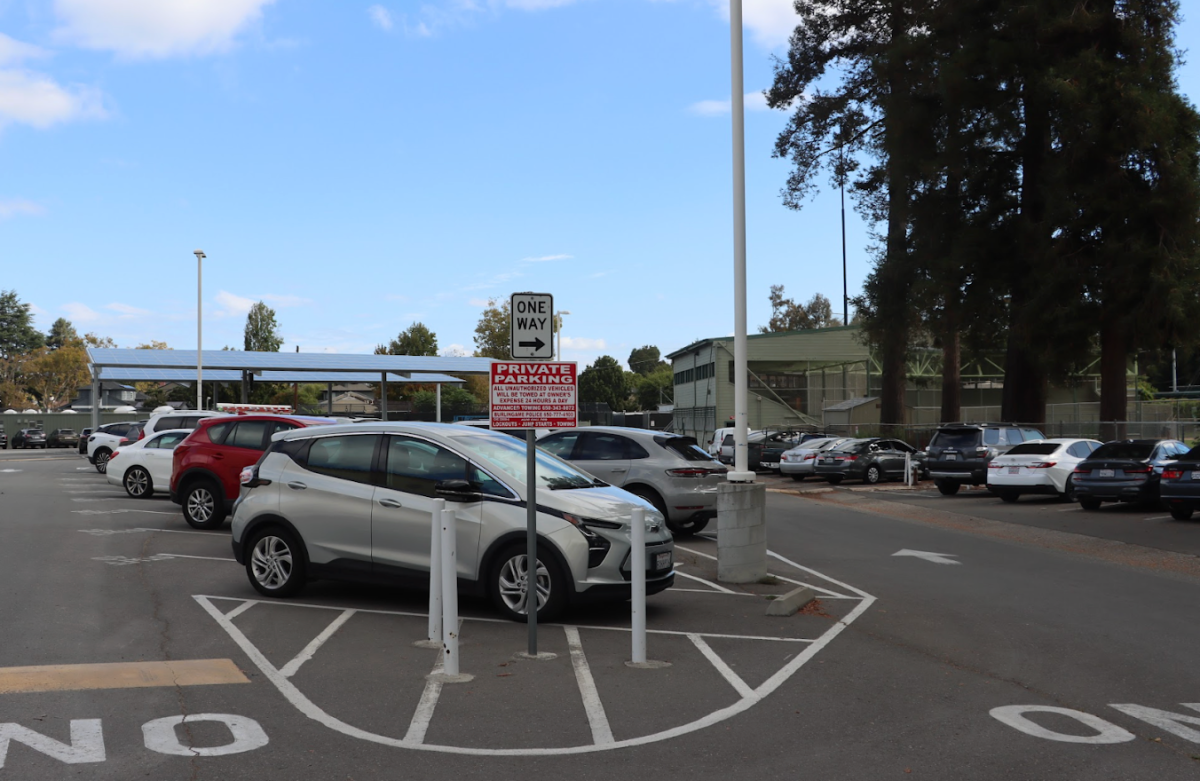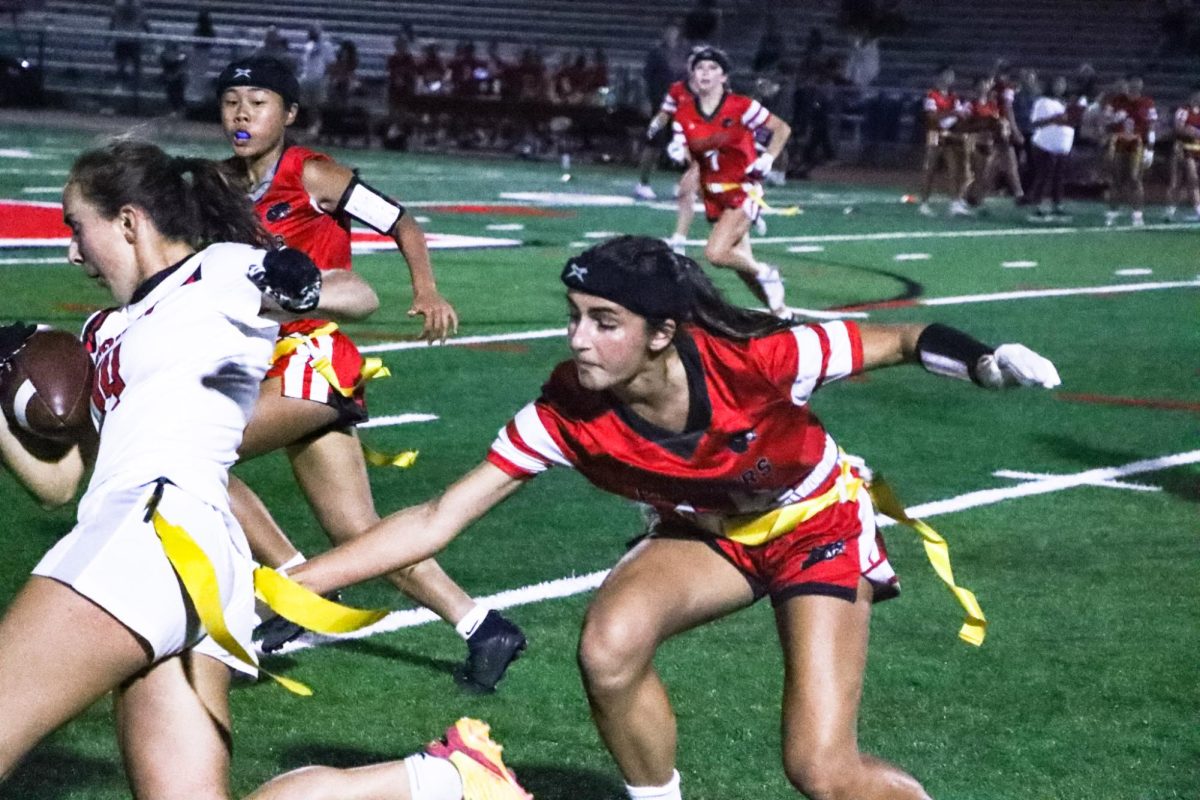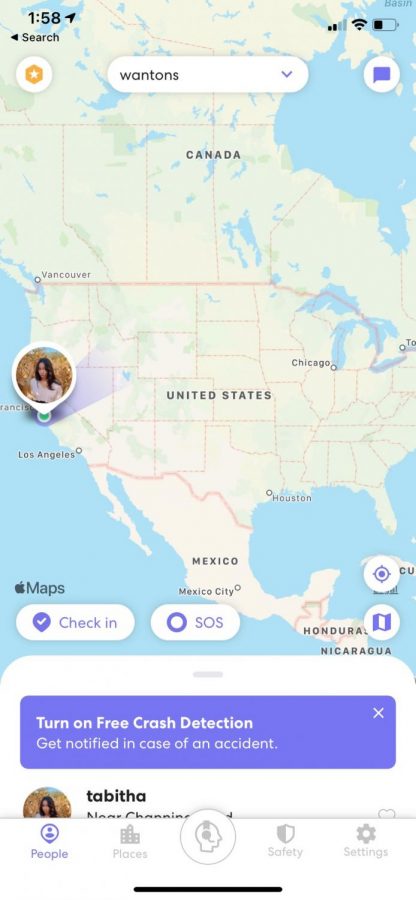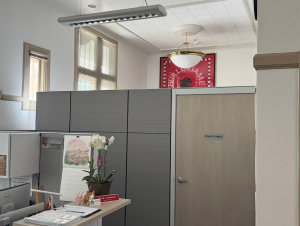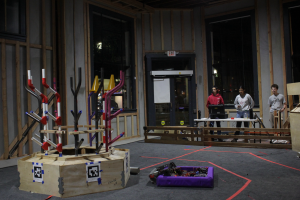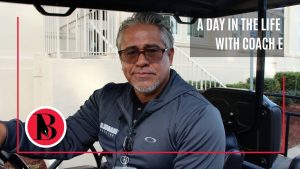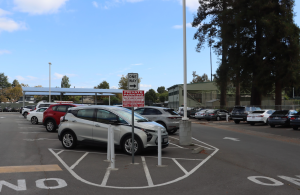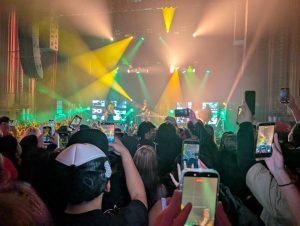Tracking apps keep children safe but limits freedom
Apps like Life360 are common among parents to see where their kids are. This specific app not only tracks one’s location but monitors how fast they are driving, and how much battery life they have on their phone.
February 24, 2021
Apps such as Life360 and Find My Friends have become increasingly popular among parents in order to track their children’s locations. The apps consist of a map in which everyone in the group can see each other’s location. The apps will track a user’s location as long as they are connected to the internet — when disconnected, their location will freeze. Parents often use these apps to ensure their child’s safety when going out. However, some students believe this is an invasion of privacy.
Freshman Purvi Jain has her location shared with her mother on the app Find My iPhone. She does not mind the fact that her parents can see her location and doesn’t feel like it majorly affects her life, as her parents rarely check her location.
“I don’t ever feel creeped out by it, it’s not like she’s tracking my every move,” Jain said.
Moreover, she understands the safety benefits of the app; if she were to get into trouble she feels better knowing that someone can see her location.
“I do feel safer with it, in case anything happens to me, I know [my mom] will have my location,” Jain said.
Jain’s mother, Puja Agrawal, was only prompted to track her children’s locations because the app came downloaded on her phone. Agrawal has since used Find My Friends as a safety measure and doesn’t feel the need to check her kids’ location often.
“I never check [their location]. I have checked it maybe once or twice just to make sure they are safe,” Agrawal said.
Just as she can see her kids’ location, they can also see her’s, and she doesn’t have a problem with it.
“It does not make me uncomfortable for them knowing where I am,” Agrawal said.
Some students may feel more comfortable with their location being shared, while others view it as an invasion of privacy.
Sophomore Joy Yeo does not have her location shared with anyone. Although she understands the safety benefits of the app she doesn’t want to share her location with her parents and views the apps as unnecessary.
“It’s not necessary just because I feel like we need that kind of trust with [our] parents,” Yeo said. “You’re gonna do what you need to do.”
Yeo believes that teenagers need freedom and constantly being tracked doesn’t allow them to have that freedom.
“I feel like it’s not enough freedom for the child to really live their life the way they want,” Yeo said.
On the other hand, sophomore Kai Louie-Badua has Life360 downloaded to his phone so his parents can see his location. The app also allows his parents to see his driving speed, when he arrives home, and the battery life of his phone.
“I mean, I’m pretty honest with my parents so it doesn’t really matter,” Louie-Badua said.
.
Sophomore Elise Ehrhardt sees the use of these apps as a very beneficial tool to ensure their child’s safety but doesn’t believe kids need to be tracked on a daily basis.
“I think that in some cases they can be helpful, like for example if I were to be kidnapped or something [tracking] could possibly save my life,” Ehrhardt said.
While she understands the benefits, Ehrhardt personally doesn’t like the idea of being tracked.
“As a teenager, I think that it’s kind of an invasion of privacy,” Ehrhardt said.
She also reveals how the app could create a negative relationship between the child and parent.
“I think if the parents abused this and they have the ability to track their kids everywhere they go, they can make their relationship become very toxic, and then parents will never get close to the child because [the child] can’t trust their parents,” Ehrhardt said.






